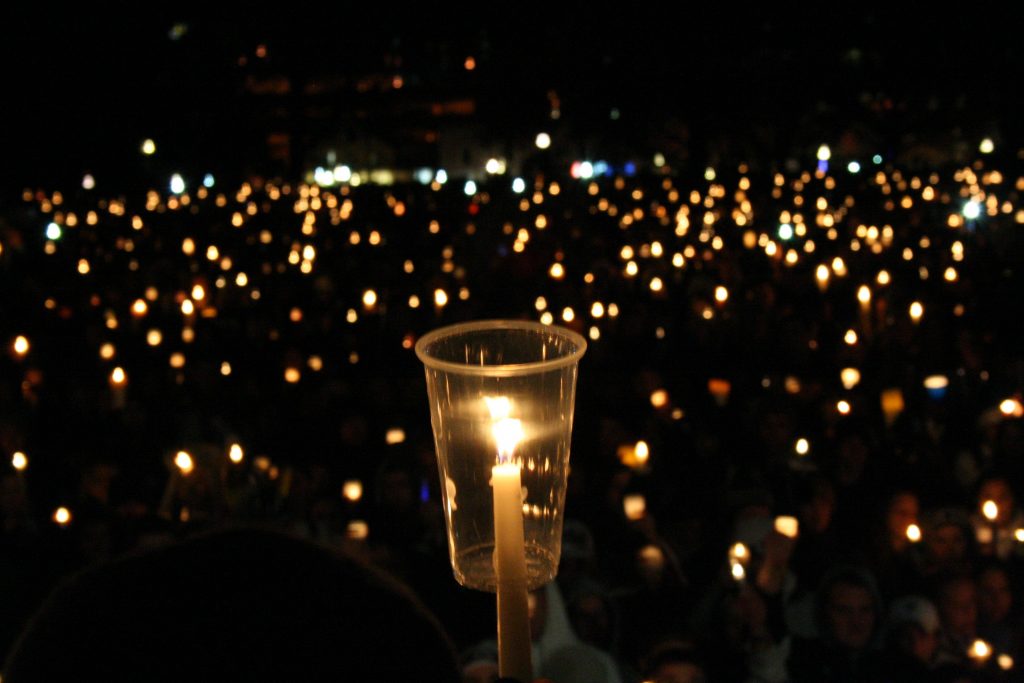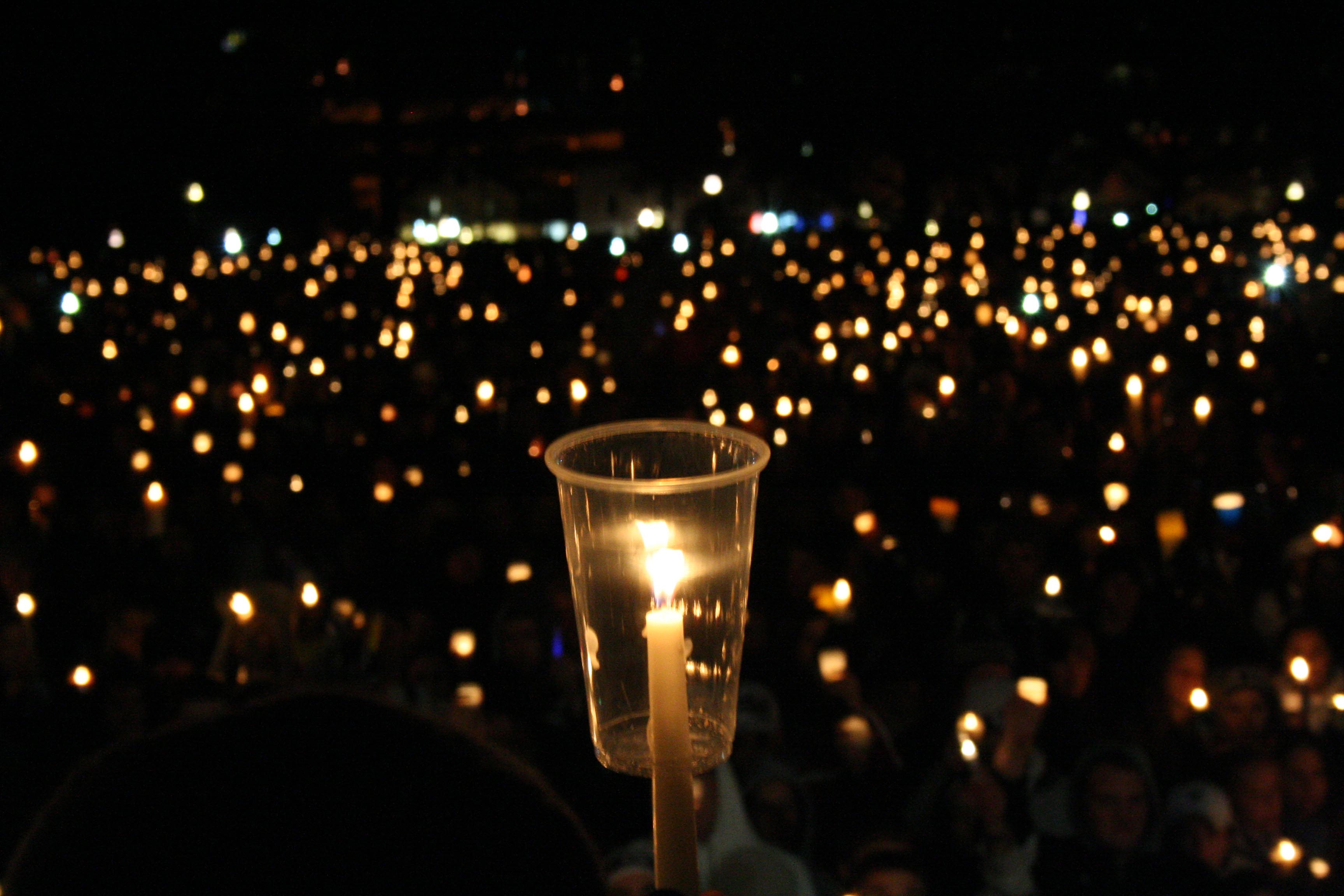
This sermon is based on an article that originally appeared on the Sojourners Website. Click this link to read the entire article.
I have never been a great one a keeping my New Year resolutions. Sure, I like to make them but about the 3rd of 4th of January the wheels have come off the wagon and by February I cannot even remember what they were. Yes, we all want to be a little lighter than we are and sure, we will try and exercise more but these are things that we should be doing anyway, but somehow making a resolution makes us feel a little better. The desire to change is not a bad thing as change allows growth and growth is a very good thing.
But what resolutions are we making in our spiritual life?
The other day I was reading an article, “10 Resolutions for 2018” which included a few suggestions for a spiritual change for the coming year. I take no credit for any of this, we maybe some of the thoughts are mine.
- To start each day with a “yes!” to my faith – and to my personal and public morality.
I have said this before, we need to recommit ourselves to our faith journey every day. We need to say yes to God’s love and yes to our allegiance to Jesus Christ. We need to say yes to discipleship and that means acknowledging that Jesus Christ is Lord and no one else. Saying yes to my faith will mean saying yes to being an engaged citizen, practice honest civil discourse, service to what is right, not just what is popular, and courageous witness to what is wrong. I pledge that I will continue to speak out, in a louder voice, against what I perceive as evil as my faith teaches me.
- To have the courage to say “no!” when that is required, wherever it is required.
This includes all aspects of our lives. This is one of my weakest points, I have trouble saying no and because of that, I get over committed and things don’t get done. But saying no means to go beyond our own personal comfort. We need to be able to say no to people, even in our own family or church family when they defend ideas and actions that are antithetical to the gospel. We need to demand, of ourselves and others, conversations about our gospel values and to hold political discussion in Christian communities and hold each other accountable.
- To not say “no,” or wait to stand in opposition to wrong and dangerous ideas and actions, until I see how other will respond.
We need to follow the gospel, wherever that will take us, regardless of the political implications of our actions. We should not do something, or not do something because it is popular but all of our actions should come from our understanding of the gospel and because it is right. We need to be the ones who have the voice for the least of these.
- To hold the bible in one hand and the news in the other as I go through each day.
We should always strive to make decision, public and private, based on our gospel values and what Scripture demands of us and teaches us.
- To better answer the biggest challenges of 2018 by acting on my faith, rather than reacting from my emotions.
To respond to genuine outrages with deeper commitment rather than anger and to respond to despair with action rather than cynicism. We need to strive to combat hatred, in all forms, with love, a deep abiding love not just lip service and to counter feelings of hopelessness with hope and optimism. In 2018 we, as a congregation, will face one of the biggest decisions a congregation can make that of calling a new minister. The choice needs to be influenced only by prayer and not by personal agendas. Start praying now for the person that God has already chosen and pray that the decision we make will be made in that spirit of prayer and guidance from the Holy Spirit.
- To see evil and injustice as a call to go deeper.
Deeper into the disciplines and practices of our faith; deeper into relationships with allies and friends, especially across racial lines; and deeper into our relationships with those on the margins and who are most vulnerable and targets of injustice.
- To spend more time with family.
Our children and our grandchildren need to understand what is going on and how to respond to it. We do them no justice by trying to shield them from the realities of this world and, whether we try and protect them or not, they will be exposed to it. We need to find the words to explain it to them and to teach them to pray for the world and what is going on. We protect them by giving them the tools and skills necessary to help them interpret things and by our assurance that we will be together through it all.
- To pray for particular people who will be playing critical roles in the outcomes of political events in our country and the world.
I will pray earnestly for the press that they will search earnestly and endlessly for the truth and have the courage to print it. I will pray for the judiciary to face the hardest questions with a commitment to the rule of law more than the rule of politics. I will pray for our leaders in congress, regardless of their party affiliation, that they would understand themselves as separate branch of government and to hold to the ideal of checks and balances. And I will continue to pray for the president. Our scriptures instruct us to pray for our political leaders even if we disagree with them, especially if we disagree with them. But we must also pray for our church leaders. As I mentioned we are facing one of the biggest decisions a congregation can make. Pray for all those involved in the process that the Holy Spirit will guide us. And please, pray for me each day as I strive to help to guide this congregation.
- To work and pray to grow in my trust of God, friends, and community.
I will strive to trust in faith, hope, and love and believe that the greatest of these is love and to be ready, every day, to act by faith, in hope, upon what I believe even if it is not always popular.

